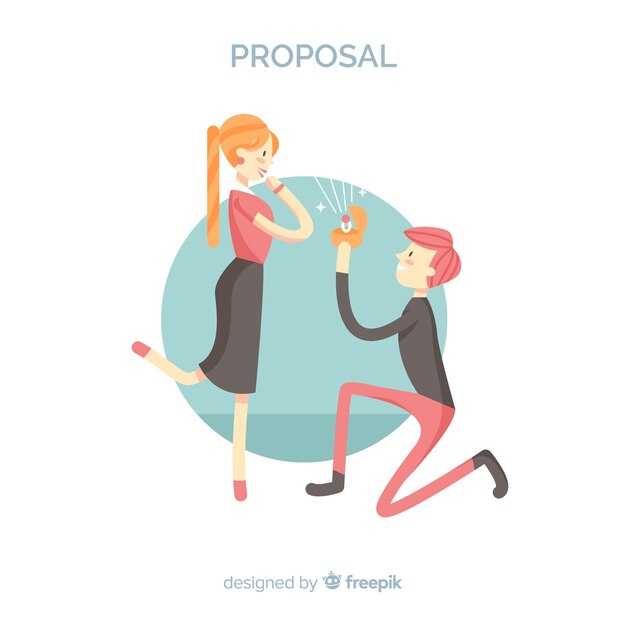Amacımın ne olduğunu biliyor musun? Pek çok ilişkiye zarar veren güç mücadelelerini durdurmak. Çiftler çoğu zaman dengesiz kontrol dinamiklerine kapılır ve insanlar bunun ne kadar yıkıcı olabileceğini fark etmeyebilir. Dr. John Gottman'ın binlerce çiftle yaptığı araştırmada, heteroseksüel ilişkilerde bir erkeğin partnerinin etkisini kabul etmeyi reddetmesi durumunda, ilişkinin çökme olasılığı yüzde 81“dir. Bu gözlem erkeklere yönelik bir saldırı değil - kadınlar da kontrolcü ve küçümseyici olabilir. Mesele cinsiyet değil; baskı, kontrol ve benmerkezcilik kaçınılmaz olarak yakın ilişkilerde acıya ve kalp kırıklığına neden olur. Kendinizi sürekli diken üstünde hissediyorsanız, bu gerçek bir sorundur. Saygısızlığa uğramamak veya küçümsenmemek için kelimelerinizi dikkatlice seçiyorsanız, bu sağlıklı değil. Sadece duyulmak için sesinizi yükseltmek zorundaysanız, bu yanlış. Kimse manipüle edilmemeli veya baskı altında tutulmamalı. Bir partner size isim taktığında, bağırdığında, acınızı küçümsediğinde, kurban rolüne girmeden, suçu tersine çevirmeden veya gaslighting yapmadan duygularınızı dinleyemediğinde - yani savunmasızlık cezalandırıldığında - bu sadece duygusal olgunlaşmamışlık değildir. Bu güçle ilgili: biri kontrol konusunda ısrar ediyor. Bir sınır koyduğunuzda veya incindiğinizi ifade etmeye çalıştığınızda ne olduğuna dikkat edin. Farklı bir şekilde sevgi istediğinizde nasıl tepki verdiklerini fark edin - çoğu zaman tepki açıklık yerine cezalandırmadır. Etkinizi kabul etmeyi reddediyorlar, sadece kendilerini önceliklendiriyorlar ve taciz edici olabilecek toksik, yıkıcı bir örüntü yaratıyorlar. Bir partner sizi rahatsız olduğunuz bir cinsel aktiviteye zorlarsa, bu tacizdir: bu karşılıklı ilgi, zevk veya güvenlikle ilgili değildir, kontrolle ilgilidir ve ilişkiyi aşındırır. Bu, kırmızı bayrakları fark etmek ve güç mücadelelerini erken veya nerede ortaya çıkarsa çıksın durdurmak için bir çağrıdır. Bu ortaklıkta eşitsiniz: duygularınız önemli, sesiniz önemli, ihtiyaçlarınız önemli ve güvenliğiniz önemli. Bir partnerin etkisini kabul etmek, ”Benim için önemlisin; sana değer veriyorum, sana saygı duyuyorum, seni onurlandırıyorum. Asla göz ardı edilmiş, ihmal edilmiş, incinmiş, saygısızlığa uğramış veya terk edilmiş hissetmeni istemem" demektir. Bu, sevginin özüdür. Bunu deneyimlemiyorsanız ve partneriniz tarafından baskı altında tutulduğunuzu hissediyorsanız, güvende olmak için adımlar atın ve ister kalmayı ister ayrılmayı planlayın, bu dinamikte size yardımcı olabilecek bir uzmana danışın.

Bir partnerin gücü elinde tuttuğuna dair pratik işaretler:
- Kararlar tek taraflı alınıyor veya ihtiyaçlarınız sürekli olarak göz ardı ediliyor.
- Tepkiden dolayı anlaşmazlıklarınızı dile getirmekten, öfkenizi ifade etmekten veya endişelerinizi paylaşmaktan korkuyorsunuz.
- Sınırlarınız görmezden gelinir, alay edilir veya cezalandırılır.
- Sosyal ilişkileriniz, mali durumunuz veya kişisel özgürlüğünüz kısıtlanmış veya kontrol altında tutuluyor.
- İlişkiyi etkileme çabalarınız reddedilir veya küçümsenmeyle karşılanır.
- Sık sık küçümseme, manipüle etme veya tehditler (açık veya ima yoluyla) mevcuttur.
Nasıl yanıt verilir ve kendinizi nasıl korursunuz (kısa vadeli ve devam eden adımlar):
- İçgüdülerine güven. Bir şey yanlış geliyorsa, çoğu zaman öyledir.
- Açık ve net sınırlar belirleyin (örneğin: “Bana isim takılmasını kabul etmeyeceğim. Böyle bir şey olursa odayı terk edeceğim.”) ve uygulayacağınız sonuçları belirtin.
- İX olduğunda incinmiş hissediyorum. Y'ye ihtiyacım var. Güvenlik söz konusu olduğunda uzun derslerden kaçının.
- Güvendiğiniz arkadaşlarınızdan, ailenizden veya bir terapistten destek alın; kontrolcü davranışlarla tek başınıza başa çıkmaya çalışmayın.
- Olayları (tarihler, saatler, neler olduğu) belgeleyin ve özellikle davranışlar tırmanırsa, tehdit mesajlarının veya mali kayıtların kopyalarını saklayın.
- Eğer acil tehlike içindeyseniz, yerel acil durum numaranızı arayın. Aile içi şiddet yaşıyorsanız, gizli danışmanlık ve barınma seçenekleri için yerel veya ulusal aile içi şiddet yardım hattıyla iletişime geçin.
Sağlıklı güç paylaşımı nasıl görünür:

- Karşılıklı etkileşim: her iki partner de diğerinin ihtiyaçları ve bakış açıları tarafından şekillenmeye isteklidir.
- Saygılı anlaşmazlık: anlaşmazlıklar küçümseme, isim takma veya zorlama olmadan ele alınır.
- Önemli konularda ortak karar alma, kişisel konularda bireysel özerkliğe saygı duyma.
- Tamir ve özür: Partnerlerden biri diğerini incittiğinde, samimi tamir girişimleri yapılır ve kabul edilir.
- Duygusal güvenlik: her iki partner de cezalandırılma veya alay edilme korkusu olmadan kırılganlıklarını ifade edebilir.
Denenebilecek iletişim araçları ve metin örnekleri (güvenli, basit ve doğrudan):
- Ben-ifadeleri: “[Davranış] olduğunda [duygu] hissediyorum. [Belirli değişiklik] ihtiyacım var.”
- Yumuşak başlangıç: Sakin bir şekilde, suçlamadan konuşmaları başlatın. “Benim için önemli bir konu hakkında konuşmak istiyorum. 15 dakika ayırabilir miyiz?”
- Mola verme planı: “Çok üzülürsem, 20 dakikalık bir ara vereceğim ve sohbete geri döneceğim.”
- Fikrinizi almak istiyorum ve ayrıca bu konuyu nasıl gördüğümü de duymanızı rica ediyorum.“
Ne zaman profesyonel ve hukuki yardım alınır:
- Çift terapisi, her iki partner de çalışmaya istekli olduğunda ve hiçbir partner kontrolcü veya istismarcı olmadığında yardımcı olabilir. Eğitimli terapistler tarafından uygulanan kanıta dayalı yaklaşımları (örn. Gottman Metodu, Duygu Odaklı Terapi) arayın.
- Zorlama, şiddet, cinsel baskı veya tehdit devam ediyorsa, bireysel danışmanlık alın ve aile içi şiddet hizmetleriyle iletişime geçin. Bir güvenlik planı ve hukuki danışmanlık gerekebilir.
- Güvenliğin risk altında olduğu durumlarda yasal önlemler (uzaklaştırma kararları, çocuk koruma hizmetleri, velayet mahkemeleri) uygun olabilir; bir avukata veya yerel savunuculuk örgütüne danışın.
Öz bakım ve özerkliği yeniden inşa etmek:
- Kimliğinizi ve bağımsızlığınızı güçlendiren destekleyici insanlarla ve aktivitelerle yeniden bağlantı kurun.
- Yargı yeteneğinize yeniden güven inşa etmek için küçük alanlarda karar verme alıştırmaları yapın (finans, sosyal planlar, günlük rutinler).
- Eğer ilişki sürekli bir korku veya endişeye neden olduysa, topraklama tekniklerini kullanın ve travma odaklı terapi arayışına girin.
Son notlar: “Huzuru korumak” adına kontrol edilmeyi veya küçültülmeyi kabul etmek zorunda değilsiniz. Sağlıklı ilişkiler, sürekli karşılıklı etki, saygı ve savunmasız kalabilme güvenliği gerektirir. Eğer dinamik istismarcı geliyorsa veya nasıl ilerleyeceğinizden emin değilseniz, nitelikli bir uzmana, güvendiğiniz bir sırdaşa veya bölgenizdeki uygun bir yardım hattına başvurun. Acil tehlike altındaysanız, derhal yerel acil servislerinize başvurun.


 Bir kişinin İLİŞKİDE GÜCÜ elinde tuttuğunda ne olur?">
Bir kişinin İLİŞKİDE GÜCÜ elinde tuttuğunda ne olur?">

 4 Powerful Emotional Stages Avoidants Face When You Finally Step Back | Avoidant Attachment Style">
4 Powerful Emotional Stages Avoidants Face When You Finally Step Back | Avoidant Attachment Style">
 THIS PROVES an AVOIDANT Wants You FOREVER (and Loves You Deeply)">
THIS PROVES an AVOIDANT Wants You FOREVER (and Loves You Deeply)">
 Why Your Traumatized Self CRAVES ORDER">
Why Your Traumatized Self CRAVES ORDER">
 The 5 Unspoken Rules for Making an Avoidant Man Finally Crave a Deep Connection">
The 5 Unspoken Rules for Making an Avoidant Man Finally Crave a Deep Connection">
 ">
">
 I figured out why my Relationships kept Failing.">
I figured out why my Relationships kept Failing.">
 Sınırlar Narsistlerde İşe Yarıyor mu?">
Sınırlar Narsistlerde İşe Yarıyor mu?">
 Travmanın Etkilerinden Daha Hızlı İyileşmek İçin İpuçları (4 Parçalık Derleme)">
Travmanın Etkilerinden Daha Hızlı İyileşmek İçin İpuçları (4 Parçalık Derleme)">
 Pornografi, ilişkiniz için SON DERECE tehlikelidir">
Pornografi, ilişkiniz için SON DERECE tehlikelidir">
 Bu TEK Sevgi Hilesi, Kaçıranlarla Kırılmaz Bağlar Yaratır">
Bu TEK Sevgi Hilesi, Kaçıranlarla Kırılmaz Bağlar Yaratır">